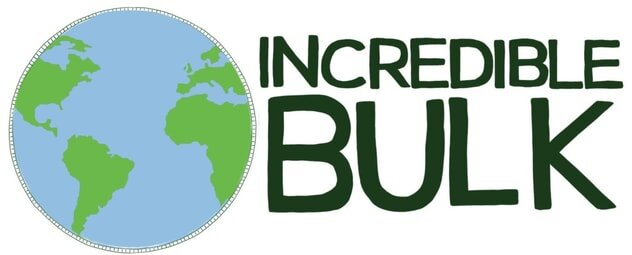The Story of Plastic
/This week we watched The Story of Plastic, a new documentary from The Story of Stuff and Break Free From Plastic.
This is an excellent documentary covering the whole life cycle of plastic, exposing the true villains of the plastics crisis - the producers. There has been plenty of press on plastic pollution and what consumers can do about it but somehow the producers of plastics have managed, until now, to stay out of the narrative. It turns out that the producers of plastics, largely fossil fuel companies such as shell, dow, exxon etc, have been pretty clever in shifting the blame when it comes to our plastics crisis, and they’ve been doing it from the start of the industry. The story is pretty shocking and we couldn’t quite believe it (and yet you can knowing the greed of industry!). Here is some of what we learnt.
Plastics gave the fossil fuel companies an additional product and revenue, which they have been selling to us since the late 1940s. Embracing the ‘convenience’ and ‘buy more’ marketing messages of the post war era plastics quickly infiltrated our daily lives. The problem of single-use disposable plastics was noted early on with laws limiting disposable packaging coming into force in the early 1950s. However with clever marketing the producers managed to shift the focus to anti-littering instead of anti-production with campaigns such as ‘Keep America Beautiful’ causing limits on disposables to disappear for decades.
These companies aren’t stupid and they’re very powerful. Continually shifting the blame they have avoided taking responsibility for the crisis they have caused, making billions of dollars in the process. In the 70s with a rise in environmental awareness they again avoided criticism by urging municipalities to run tax-payer funded recycling programs instead of owning the problem themselves. This narrative has continued to the present day, with increased marketing and focus on consumer responsibility and recycling rather than any restrictions on production or producer responsibility.
And while recycling is great in theory, it is not the solution while growth in plastic production continues. There is simply too much being produced. In 2015 over 400m tonnes of plastic was produced and of all the plastic ever produced more than half was made in the last 15 years with 91% of it never being recycled. There is also the darker side of recycling to consider, with Western recycling models being largely built on poverty. The majority of Western recycling is shipped to developing countries, where there is a low-cost workforce available to do the fossil fuel companies dirty work. We simply do not have the correct recycling systems in place to manage the ever increasing flow of single use disposable plastics.
And they’re not looking to stop this deception. With major plastics producers forming and backing the Alliance to End Plastic Waste you would think that they have finally seen the error of their ways. Unfortunately not. Despite committing to spend $1.5b to clean up the industry this investment paled in significance against the $204b allocated to build more than 334 new petrochemical facilities. This industry does not want to slow down. With demand for fossil fuels waning in favour of renewable energy amongst increased climate crisis awareness the fossil fuel companies are hedging on their plastic petrochemical market to keep sales and revenue growing.
So what can we do?
Continue to avoid single-use disposable plastic. There is still a truth in reduced consumer demand forcing reduced production, this doesn’t always happen quickly but doesn’t mean we should stop campaigning this way.
Divest investment away from Fossil Fuel and Petro-chemical companies.
Invest in compostable bio plastics. Bio plastics are helping in the movement away from the use of fossil fuels to create plastics but you have to be careful. A bio-plastic can have the exact same chemical make up as a fossil fuel plastic and therefore be just as harmful when it comes to entering the natural environment. Always look for compostable options. And also be aware that these bio plastics will also need their own recycling systems in place. With many being industrially compostable rather than home compostable we need to have access to industrial composters to make sure the bio-plastic is put to best use.
Invest in and support localised systems to help society break free from powerful multinational companies. That could be supporting your local refill shopping options, local waste management systems that are dealing is waste locally, local zero waste and circular economy initiatives.
Campaign for change in policies and legislation, with a focus on extended producer responsibility. Surfers Against Sewage have launched their #ReturnToOffender digital campaign running until 22nd May. You can also do your own brand audit and submit the data with The Story of Stuff and Break Free From Plastic. Check out Plastic Pollution Coalition for info on how to get involved with policy campaigning. Sign the Friends of the Earth petition to phase out plastic pollution. Join City to Sea in their Call Out Coke campaign. Keep an eye on the Story of Plastic
Get involved and become a member of Break Free From Plastic. Keep an eye on their how to get involved pages on policy campaigns and corporate responsibility campaigns that you can support.
Watch the documentary! There is a wealth of information contained in the film and much more to the story than what we have outlined above. Surfers Against Sewage are holding another ‘film night’ on the 5th June, you can sign up for free and have 48hrs to watch the documentary. Sign up here! Or check out Story of Plastic .

